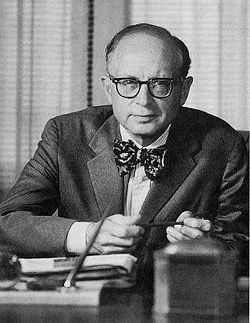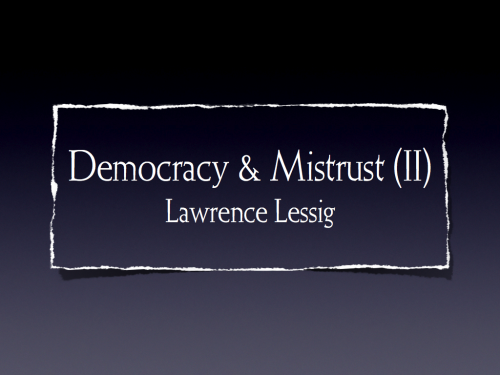Message To The Fitness Industry - Real Innovation Requires Changing Your Thinking
/ One of my favorite quotes is that of Daniel Boorstin who observed, "The greatest obstacle to discovery is not ignorance, it is the illusion of knowledge." Boorstin, a renowned historian and former Librarian of Congress who wrote numerous books including, The Genius of American Politics, Democracy and Its Discontents, and The Lost World of Thomas Jefferson, was right. Overcoming challenges is largely a function of letting go of assumptions. As he put it, "If we think we know something, then we face an obstacle to innovation." In his 1983 bestseller The Discoverers , the author chronicled the achievements of Galileo, Columbus, Darwin, Gutenberg and Freud, among others, who emerged as drivers of creativity and courage, and committed ingenious acts of revolt against ingrained habit. Great discoverers dispel illusions and reveal something new about the world as is further evidenced by Boorstin's interpretation of Thomas Jefferson's contributions and philosophies, when he said,
One of my favorite quotes is that of Daniel Boorstin who observed, "The greatest obstacle to discovery is not ignorance, it is the illusion of knowledge." Boorstin, a renowned historian and former Librarian of Congress who wrote numerous books including, The Genius of American Politics, Democracy and Its Discontents, and The Lost World of Thomas Jefferson, was right. Overcoming challenges is largely a function of letting go of assumptions. As he put it, "If we think we know something, then we face an obstacle to innovation." In his 1983 bestseller The Discoverers , the author chronicled the achievements of Galileo, Columbus, Darwin, Gutenberg and Freud, among others, who emerged as drivers of creativity and courage, and committed ingenious acts of revolt against ingrained habit. Great discoverers dispel illusions and reveal something new about the world as is further evidenced by Boorstin's interpretation of Thomas Jefferson's contributions and philosophies, when he said,
"Jefferson, in my opinion, was the apostle of experience. In other words, he was the person who believed that everything had to change. He thought that every generation should have the opportunity to have its own revolution, to write its own laws, and that was his vision of the past and the future"
Given the crisis of obesity "Globesity as Phillip and Jackie Mills call it" should we not evaluate how the growing fitness industry has not really impacted the problem ? Reliance upon Boorstin's realizations and the lessons of history are more relevant than ever, as is the need for leaders to emerge, dispel illusion and move us forward via our own revolution in the fitness and wellness industry. Obviously what we have been doing has not been working.
Could institutional thinking in fitness and wellness be the very "illusion of knowledge" Boorstin identified? Classic institutions are by nature closed, selective and controlling. Persons participating in institutional thinking have to be "careful" of what they absorb, guarded with whom they interact and controlling of everything. Essentially, risk aversion and maintenance of the status quo is the dna of most institutions and thus the reasons most institutions are failing in an increasingly network oriented world. Are our institutions then at the heart of the problem ?
No matter the debate; be it health care, education, or your organization's effectiveness, adopting network strategies and dispelling institutional dogma is at the core of true innovation. Watch the video by Thomas Power who describes institutional thinking, its limits and the opportunity that the new paradigm provides.
What do you think ? Does the fitness and wellness industry need to change its mindset in order to become more effective at impacting the health crisis we face today ? Please contact me Bryan O'Rourke, and share your views.









